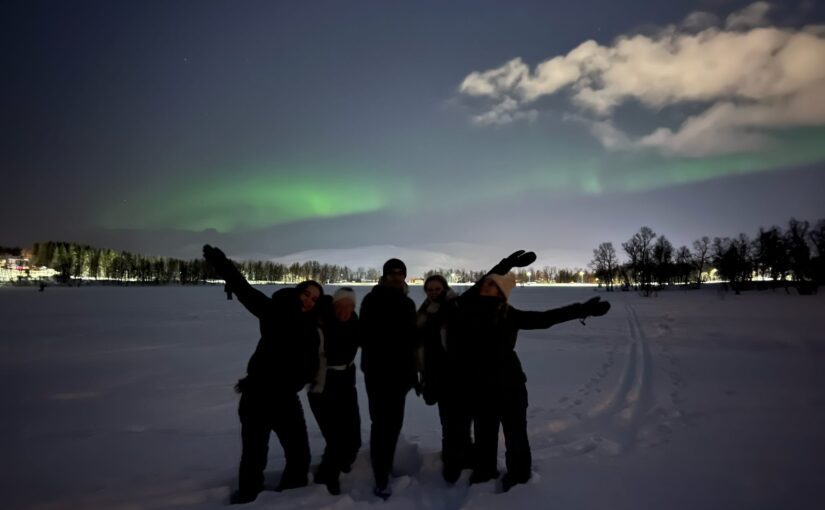Field of study in Wageningen: Soil, Water, Atmosphere
Study period exchange: 08/01/2024 – 10/06/2024
Country (exchange): Norway
City (exchange): Oslo
University (exchange): University of Oslo
Faculty (exchange): Faculty of Mathematics and Natural Sciences
2. Motivation for exchange
Why did you choose to go on study exchange?
I think that going on exchange is a great opportunity to get to know a new country and the culture that they have. You can explore the differences between The Netherlands and the country and it you meet so many new people. Exchange is something that pulls you out of your comfort zone and in combination with the many great stories about exchange I already heard, I chose to go on exchange.
What is the reason you chose for this country?
I chose to go to Norway, because I always wanted to visit this beautiful country. I really like that, even though I have been studying in the capital Oslo, you’re in nature within 30 minutes. That is something you don’t see very often. Additionally, I really wanted to get to know the Scandinavian lifestyle and enjoy what Norway has to offer.
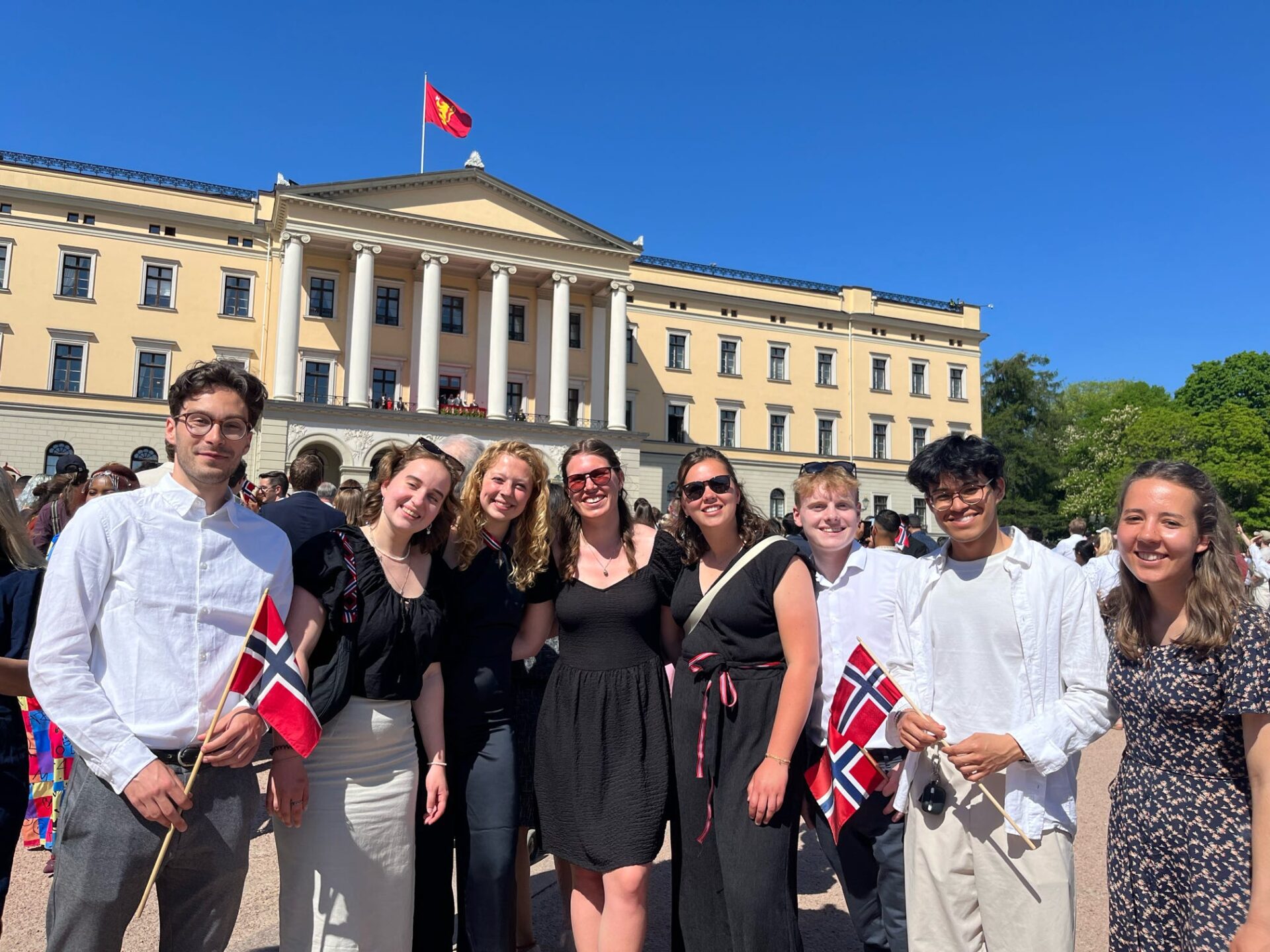
What is the reason you chose for this university?
I chose for the University of Oslo, because this university offered the courses that sounded the most interesting to me. Additionally, I thought it would be nice to study in the capital, so that you also have the feeling of a city around you.
3. Accessibility to reach destination
On the way to Norway, I took the ferry from Kiel, Germany. Of course the plane is the easiest option, but it was also an experience to go by boat. It takes about 14 hours, but you’ll be sleeping for the biggest part. I remember waking up on the ferry and going outside to take a peek, and already seeing the beautiful landscape of Norway. This is a moment I’m going to be remembering forever.
4. University and studying
Could you provide some general information about the followed courses?
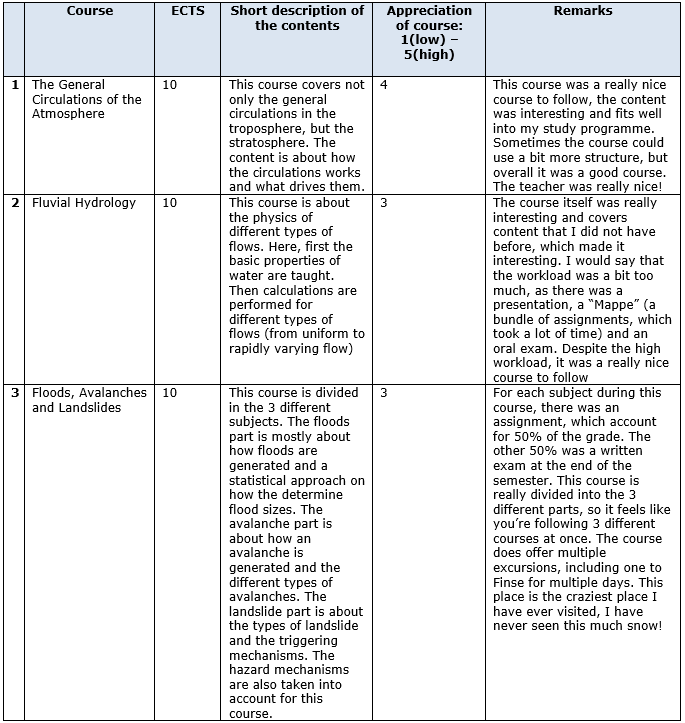
I had sufficient possibilities to select suitable courses that were taught in English: Yes, I followed master courses, and all of these courses can be taught in English.
I had sufficient possibilities to select suitable courses in my field of interest: Yes, in the faculty of Mathematics and Natural Sciences has the Geoscience department. This department offers many courses that can be followed in my field of interest.
I am satisfied with the level of the courses that I followed: Yes, the courses I followed were challenging, but I really can say that I learned something.
I am satisfied, in the end, with the selection of courses I followed: Yes, overall I am satisfied, but I have to say that the workload was a bit high sometimes (compared to other studies).
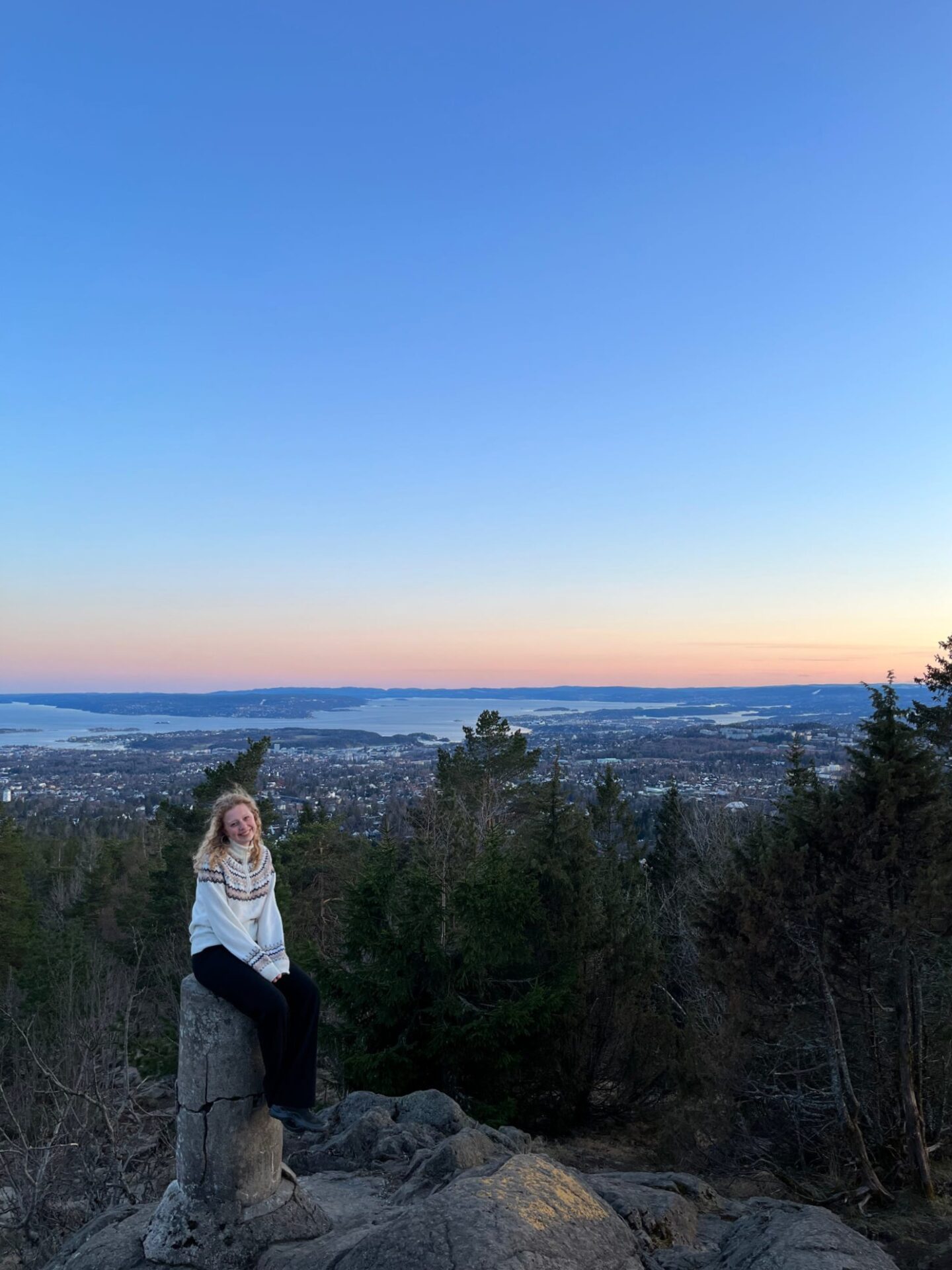
What is it like to study there?
It is really nice to study in Oslo. My classes consisted of lectures, tutorials, computer practicals and field work. During a semester, the courses are parallel and not divided into periods, as it is in Wageningen. I would say that the academic level is doable for a student from the WUR. The examination usually consists of multiple components: a presentation/assignment(s) and an exam. This exam can be written, but in my case I has two oral exams, which was new to me. The course material mostly consists of lecture notes. I had one course that had an actual book that we had to study. Most of the lectures are backed up by papers.
What is the culture of the university?
The lecturers are really approachable and are willing to answer any question. I got to work together with the Norwegian students and it was really nice to get to know some locals. Most Norwegian people are very introverted, but they are really nice once you get to know them. You need to take the first step, but they are really willing to get to know you. I also got to know a lot of international students and it was nice to compare cultures.
What does the university offer the student additionally?
The university of Oslo has multiple campuses divided over the city. Most of the faculties are located on one campus, Blindern. This campus has a large library, which is a nice place to study. There are multiple cafeteria’s where you can buy lunch for a decent price. SiO, the company that also organises the housing, offers sports facilities and laundry facilities are located in the student village.

5. Housing-travelling-living
What are the possibilities for housing?
In Oslo, it was relatively easy to get a room. There is a company SiO, where you can enter your top 5 of different types of rooms. After you’ve done that, you get a room assigned to you and that’s it. There are a lot of choices, private or collective, or even collective with a private bathroom. The rent I paid was about 5500 NOK, which is equal to about 500 Euro. I lived in a 11 m2 room, in a shared apartment with 6 other people. My house was located about 20 minutes away from campus (Sogn Studentby).
What is the culture like?
The culture is a bit different than what I’m used to. In The Netherlands, for example, we greet the bus driver when we get in. They don’t do that in Norway. People really mind their own business. They are very polite and willing to help once you ask them. The local cuisine has some nice dishes, or pastries mostly. The most important one has to be the Kanelbolle, which is a cinnamon bun. Next to that, waffles are a big thing, especially with some brunost (brown cheese) and jam. And, this is a thing I did not know before, the Norwegians are crazy about taco’s. Every Friday, they eat taco’s, it is the so-called taco-Friday then.
Could you give some information about public transport infrastructure?
In Oslo, there is an app, Ruter, where you can buy a ticket for the public transport. I bought a 30-day ticket every month, which costs about 50 Euro. The public transport is organised well, there are busses, metros and trams all over the city. Especially in the winter, the busses had some problem and where delayed all the time. When the snow disappeared, this got better, but there were delays quite often. The tram and metro work perfectly.
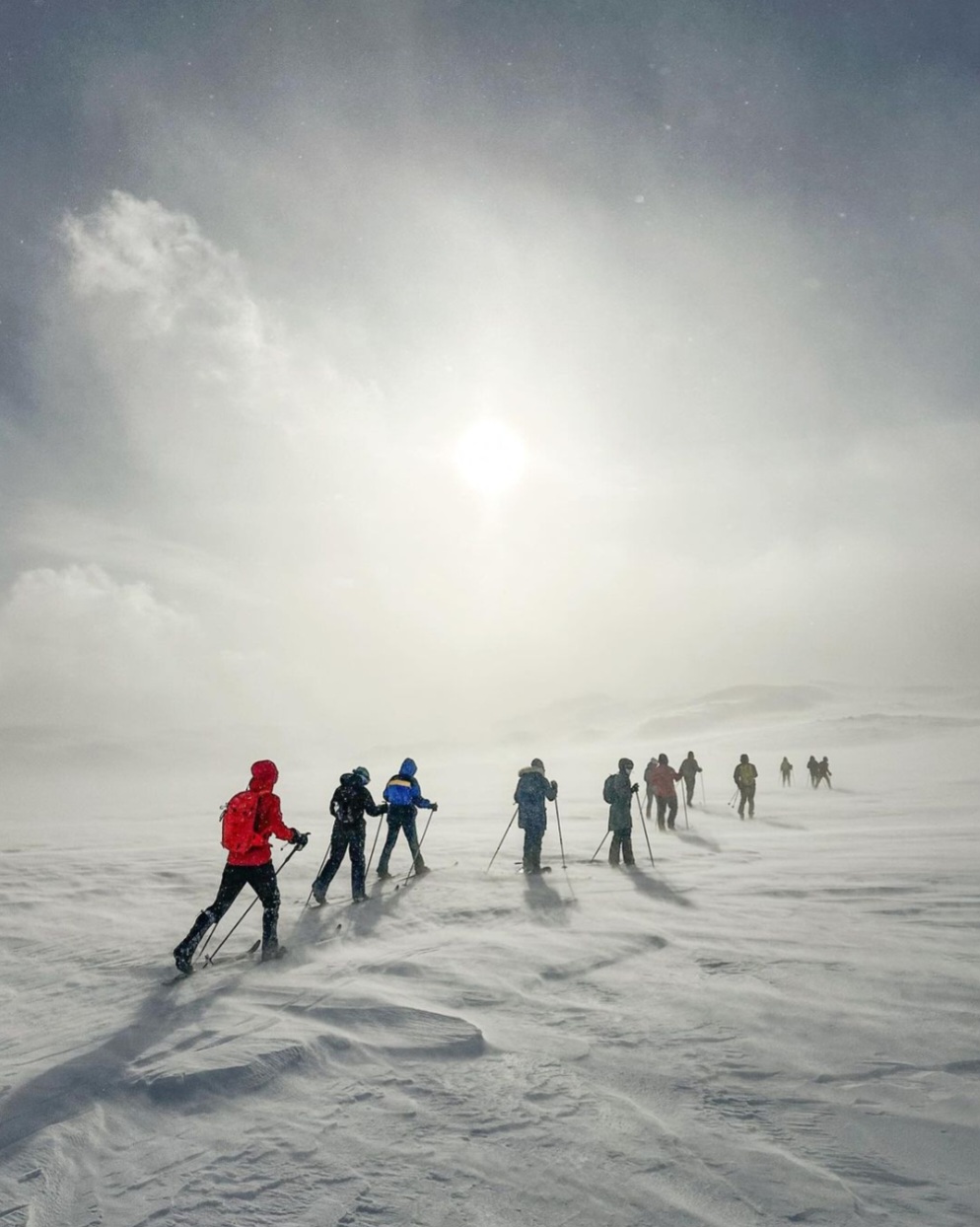
6. Expenses
Can you give an indication of your expenses for/during your exchange?

The price levels were in general [higher; lower; equal] in comparison to in the Netherlands: Higher.
Additional remarks regarding expenses?
Groceries and especially alcohol are expensive in Norway. I think it is well known that Norway is an expensive country. Vegetables and meat are also very expensive compared to the Netherlands (I paid more than €2 for a cucumber).
7. Free time
What are must-sees in the area?
Norway has quite good trains. It is nice for a daytrip to go to Lillehammer, Drobak or Frederikstad, which are all small cities. In the area, there are quite some hikes that you can do. I would recommend Vettakollen and Kolsastoppen. Of course it is totally worth it to plan some trips around the country. I visited Tromso to see the Northern lights, which was really nice! For this trip I took the plane, which takes about 2 hours. I also went to Bergen. Here, I went by train, this took about 7 hours, which is very long, but the train ride is very pretty and there is a lot to see.
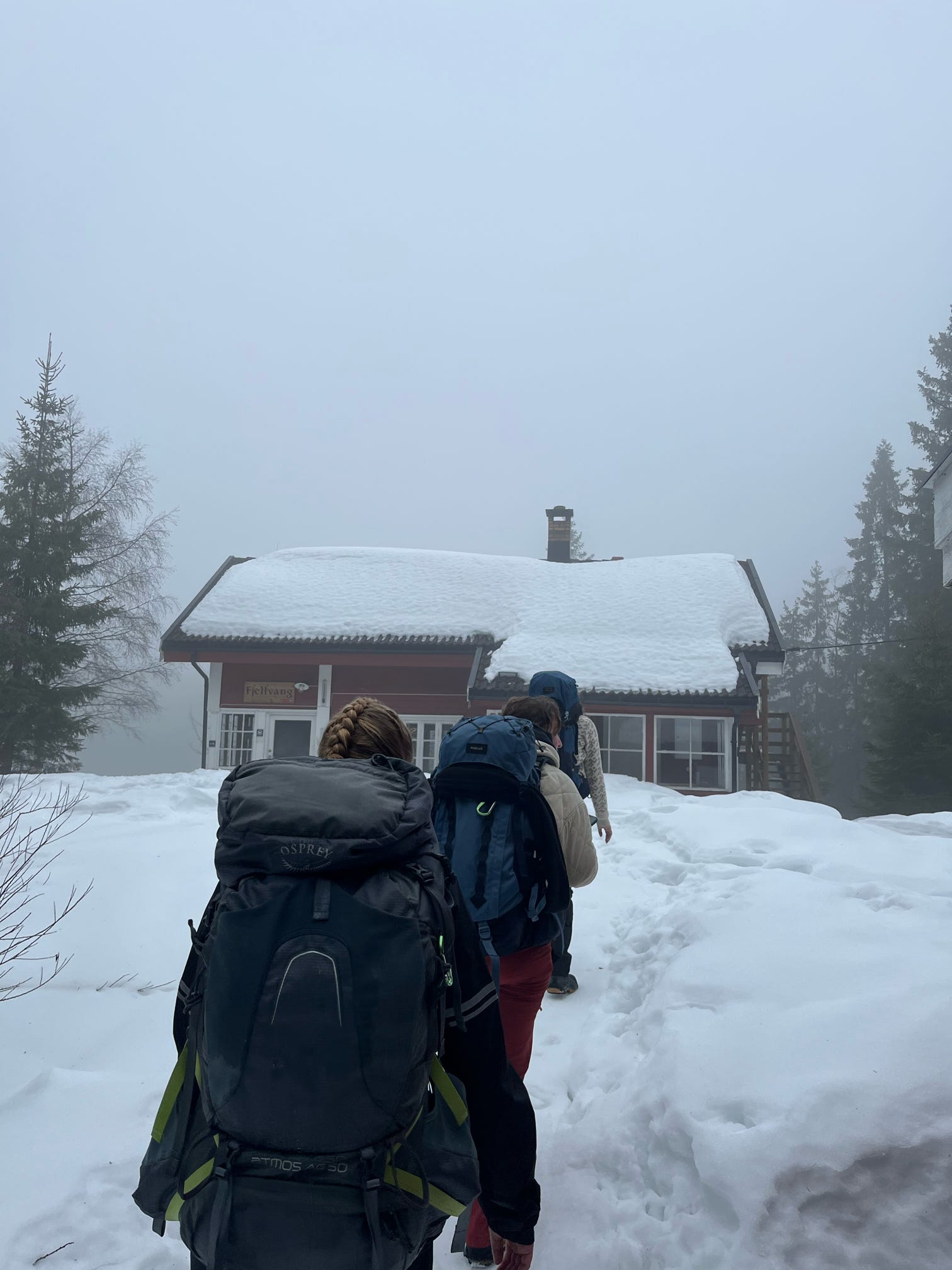
What does not appear in a travel guide, but is definitely worth seeing/doing?
I would really recommend to go on a cabin trip in Norway. It is really an experience to go into nature without any facilities (not even streaming water). I would never think I would have enjoyed it, but I really did!
7. Challenges & best moment abroad
What challenges did you encounter and how did you overcome them?
Not really, I had one time that I got sick, which sucked. Luckily I had very sweet friends that took care of me.
What is your best memory of your time abroad?
I have many great memories, but in general it’s just the many people that you meet and the bond you create in such a short time. Also the many activities that you do with these people to make amazing memories. It is something I’ve never experienced before and it’s very hard to imagine if you haven’t felt it. Exchange is really something special and I would recommend anyone to do it!
8. Contact Details
Would you like to ask Amber more questions about her exchange?
Send her a mail: amber.smid@wur.nl

